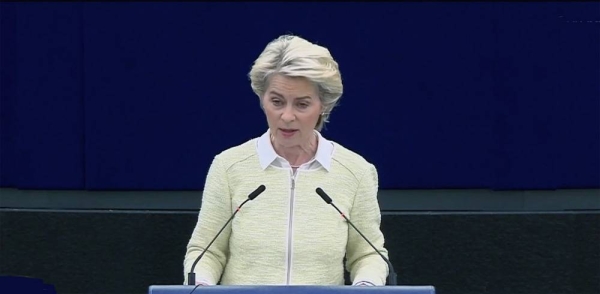
A UAE-educated entrepreneur persevered through the war to bring delivery and ride-hailing apps to Syria
Although Syria remains isolated and beset by conflict, Malek Al-Muzayen argues that now is the time to invest
DUBAI: Syria’s decade-old civil war drove a whole generation of its brightest young minds into exile, depriving its society of the skills needed to recover and keep pace with the modern world. Going against the tide of public opinion, one Damascus-born tech entrepreneur refused to turn his back on his country and, against all odds, has managed to build a flourishing business.
Malek Al-Muzayen, 35, established his first software development firm with three colleagues in 2008 when app-services and e-commerce were still relatively new concepts — especially in Syria.
Having completed a computer engineering degree at the American University of Sharjah in the UAE, Al-Muzayen returned to Syria convinced the tech industry had immense potential.
“We were working on developing a system for restaurants because, at that time, Syria had a boom in tourism, restaurants and related businesses,” Al-Muzayen told Arab News.
Sensing an opportunity, his team put their heads together and developed an accounting point-of-sale system for eateries to manage their daily accounting and invoices.
“We saw a gap for such solutions, so I was able to develop a software called Maestro and it became very successful,” he said.
Success was short lived, however. In 2011, a brutal crackdown on anti-government protests plunged the country into civil war, devastating cities and the economy and sending millions of refugees over the border into neighboring Turkey, Lebanon, Jordan and Iraq.
Others fled even further in search of safety and prosperity. Many Syrian restaurateurs chose to drop anchor in Saudi Arabia, Dubai, Egypt and Kuwait, where the tech sector was already becoming well established. From his base in Damascus, Al-Muzayen saw a fresh opportunity to provide software solutions.
“I created a network of agents to serve those new restaurants,” he said. “We had a peak in sales at that time and a surplus of money.”
But in the fast-moving tech sector, Al-Muzayen could tell the system would soon be obsolete. So, in 2013, he embraced exciting new developments in smartphone applications.
At that time, with the regime of Bashar Al-Assad isolated on the world stage, crippled by economic sanctions and at imminent risk of collapse, the environment was far from conducive to attracting investors. Al-Muzayen therefore chose to move part of his team to Egypt, where there was relative stability and investment more forthcoming.
Meanwhile, in Damascus, Al-Muzayen’s team endured daily hardship including rolling blackouts and security threats. With its own generator and space to sleep, the business served as a sanctuary for his staff amid the chaos. “The office became their home,” he said.
However, by 2014, Egypt had slipped back into civil unrest, with its new government refusing entry to Syrians. As opportunities quickly dried up, Al-Muzayen was compelled to sell up and seek his fortune in Europe.
Establishing a foothold in the German capital, Berlin, he set up a platform called Bee Order, an app that allows restaurant patrons to order food from their table using a QR code. But in the challenging new environment, Al-Muzayen struggled to get the business off the ground and his cash reserves soon ran dry.
After seeking advice from venture capitalists and start-up accelerators, he was encouraged to establish his hub back in Syria, with the promise of investment once the war ended. So, just two years after he had arrived, Al-Muzayen packed up and moved home, where he converted Bee Order into a delivery app.
However, following years of conflict, isolation and economic weakness, the market for such a service in Damascus was weaker than anticipated and uptake was sluggish.
“We had a lot of issues because people weren’t used to ordering food through an app,” Al-Muzayen said. “They suffered from years of war, so this was totally new to them. We had never had an online ordering app or a working e-commerce platform in Syria, so we were the first to introduce it but it was hard to convince people that this was the future.”
The company’s first year back in Syria was “disastrous,” says Al-Muzayen — but he was not in the business of giving up easily. Noticing that many restaurants lacked delivery drivers of their own, he realized the key to success was to assemble his own fleet of cars.
“I used my own personal car, and my partner’s, to do deliveries and we were successful. Then we increased the fleet number and funded it all from our own pockets,” he said.
With time and patience, demand for smartphone apps grew. “The world had a boom in app development, and we had a good team,” Al-Muzayen said.
By 2018, orders were growing quickly, as were his outsourcing businesses and his reputation. And yet, with the country’s economy and infrastructure still a shambles, Al-Muzayen ensured his office remained a sanctuary and his staff were well treated — otherwise “they will just leave” for Europe, he says.
Retaining his staff meant offering them hope, a good salary, special perks and a creative space for them to grow. “All the projects we accepted were strategic,” he said. “If it wasn’t challenging for the team, we wouldn’t do it, because they wanted to learn something new.”
As 2018 drew to a close, Al-Muzayen branched out further, creating a ride-hailing app named Wasilni, recruiting local motorists who wanted to make extra cash and those willing to carpool.
Business was running smoothly until mid-2019 when Syria was hit by a severe fuel crisis, forcing many local taxi firms off the road. Al-Muzayen had to obtain fuel from the black market in a move that allowed him to keep 70 of his 150 vehicles in service. The flexibility of his business model also softened the blow.
Business was running smoothly until mid-2019 when Syria was hit by a severe fuel crisis, forcing many local taxi firms off the road. Al-Muzayen had to obtain fuel from the black market in a move that allowed him to keep 70 of his 150 vehicles in service. The flexibility of his business model also softened the blow.
“We were the only ones who were able to do that,” he said. “What makes us different is we had the software and the agile mentality. Others just said it was too complicated.”
Thanks to the hard work of entrepreneurs such as Al-Muzayen, delivery and ride-hailing apps have become the norm in the relatively stable parts of Syria. Even the coronavirus pandemic has failed to halt his progress. When restaurants were forced to close under lockdown measures, he quickly branched out into grocery delivery.
None of this is to say that the economic climate in the country is conducive for entrepreneurship. The Caesar Syria Civilian Protection Act obliges the US administration to sanction businesses found providing assistance to the Assad regime and its backers.
Inflation ballooned five-fold in a span of just six months last year. Bread lines are so long that children have to skip school to wait in them, according to a report in the Washington Post.
“The situation now is worse for businesses than in 2015, although back then we had shelling and war,” Al-Muzayen said. “It’s really hard to work and cope because of the salaries and income fluctuation. Thankfully, our numbers are still going up, but it’s not easy.”
Al-Muzayen is adamant his country and its people will overcome the trauma of war and will recover. “We got used to having daily challenges, so our mindset shifts when we have a challenge to ‘what shall we do now?’” he said.
“Syria is one of the countries that has huge potential in all segments. We have very talented and smart people we can invest in at a lower cost than other countries. Moreover, the Syrian market is thirsty for a lot of other start-ups. Maybe now is the right time for people to come and invest in the Syrian people because it’s more cost competitive.”












